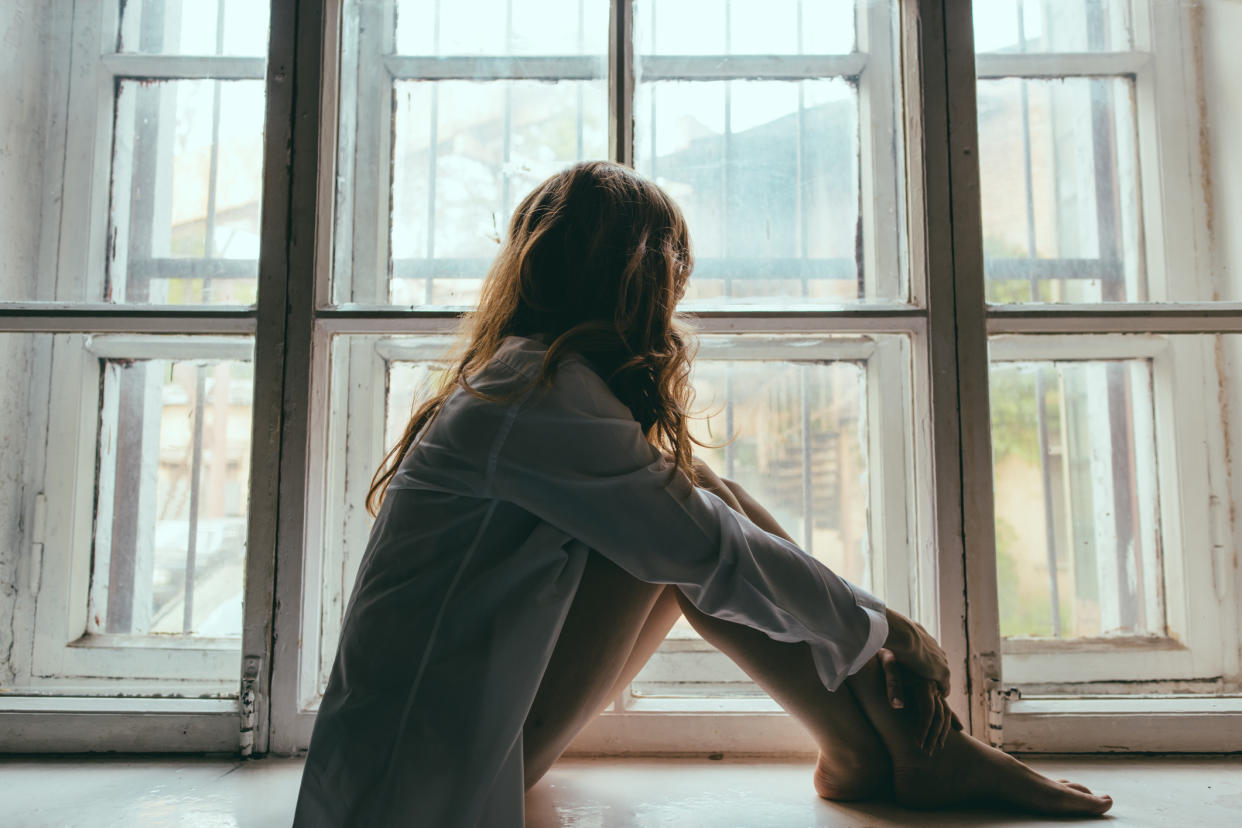Why are more women seeking domestic abuse support post-lockdown?

The number of women seeking support for domestic abuse has continued to rise as coronavirus lockdown restrictions ease, a charity has found.
Refuge, a UK provider of specialist domestic abuse support, has received more than 40,000 calls and contacts since the start of lockdown.
“We anticipated lockdown being a very challenging time for women living with abusive partners,” explained Jane Keeper, director of operations at Refuge.
“Over the last four months Refuge has seen huge spikes in the number of women who have needed our support during lockdown, and, as restrictions start to ease we are seeing demand rise yet more.”
‘Huge spikes’ in women needing support during lockdown, says Refuge
The charity’s telephone helpline, which ordinarily logs around 270 calls and contacts from women, friends and family members needing support every day, saw an increase of 77% during June.
As lockdown restrictions have begun to ease, the charity has also seen a surge in the number of women seeking refuge space (emergency accommodation) to escape their abusers.
The first week in July saw a 54% rise in women needing refuge space compared with the last week in June – the highest number of women needing emergency accommodation during the lockdown period.
During the month of June, Refuge’s National Domestic Abuse Helpline website also saw an increase of more than 800% compared to pre-lockdown statistics.
Read more: Mum launches domestic abuse awareness programme after escaping violent ex-boyfriend
Campaigners have voiced concern that strict lockdown measures, introduced to help halt the spread of coronavirus, could have heightened domestic tensions and cut off escape routes.
This meant charities had to react to ensure that those in need of support, were still able to access it.
The window to call for help when living with an abusive partner is very limited, even under ordinary circumstances, but becomes increasingly narrow when isolated with a perpetrator.
So Refuge identified a need to provide people experiencing domestic abuse with new ‘silent’ methods of accessing support.
In May we launched our live chat, providing expert support to survivors needing ‘real time’ support. Find out more about how we’ve been working to ensure every woman experiencing #DomesticAbuse can access the support she needs: https://t.co/qJw0dZzbcJ pic.twitter.com/SQTg978bYM
— Refuge (@RefugeCharity) July 23, 2020
This includes Refuge’s new ‘live chat’ function, which enables support workers to communicate with women over an online chat function even while perpetrators are in the house.
The chat function also has a ‘quick exit’ button, which means that if they need to, women can leave the chat safely and swiftly.
With almost one in four women in the UK experiencing domestic abuse at some point in their lifetime, and two women a week being killed by a current or former partner in England and Wales, finding new ways to communicate with those who needed support during lockdown, and now as restrictions ease, was vital, the charity said.
To help, Refuge has released an online guide for survivors during these uncertain times.
What’s fuelling the post-lockdown rise in calls for domestic abuse support?
Keeper suspects that the easing of lockdown restrictions could be enabling some women to be able to seek support they need or that concerned friends and family are getting in touch on their behalf.
“While we cannot draw immediate conclusions from this, what it does tell us is that women have remained with their perpetrators during lockdown, which may explain why we’ve seen an increase in the numbers of concerned third parties who have contacted us to seek support,” she said.
“We want women to know that Refuge’s services remain open, our Helpline operates 24x7 and they are not alone – if women need us we are there to support them.”
Read more: What to do if you can’t speak to 999 but need help
Lucy Hadley, campaign and policy manager at Women’s Aid, said their service providers have also been preparing for a rise in requests for support post-lockdown.
“Women’s Aid has continued to warn that COVID-19 would severely impact women and children experiencing domestic abuse,” she told Yahoo UK.
“Survivors have told us that abuse is escalating and that perpetrators are using the pandemic to exert new ways to control and abuse.

“Meanwhile, our member services have anticipated that demand for help would rise as lockdown measures ease. Responding to a Women’s Aid survey of service providers in April 2020, 66.7% stated they were concerned about future increases in demand.
“Now that women can reach out for help more easily – including as schools, health services and other parts of the public sector open up – we are not surprised that demand for support is rising.”
Women’s Aid is now warning of a funding crisis, which began before lockdown, but has been exacerbated by the COVID-19 pandemic, and which could affect their ability to meet the rise in demand for help.
Charity warns of funding crisis for domestic abuse support services
The charity is calling on the government to provide a long-term funding solution so they can continue providing their services.
“Women’s Aid estimates that £393 million is needed annually for a safe and sustainable national network of specialist domestic abuse services, including £173 million for refuges,” Hadley explained.
“We are calling for the chancellor to deliver this investment in the upcoming comprehensive spending review.”

Claire*, a woman who accessed support from Refuge by using the live chat function during lockdown, also hints at how adaptions made by the charities to find new ways to support women during and after lockdown may have allowed more women to seek support at this time.
“Refuge has been a huge support to me,” she says. “The police suggested I contact their Helpline - but I just couldn’t imagine being able to pick up the phone and talk about what I was experiencing - it felt too raw and too risky.
“Being able to access support via live chat, knowing there was a quick exit button I could use if I needed to, helped me enormously and meant I could type out my words rather than speaking them, which took such an emotional burden off me. I feel like I can now talk about my experiences without fear - I know I am not alone.”
*Claire’s name has been changed to protect her identity.
Read more: How to manage lockdown in an abusive relationship
Where to get help
Anyone experiencing abuse should call the National Domestic Abuse Helpline, run by Refuge, on 0808 2000 247.
If you are unable to call, then you can visit www.nationaldahelpline.org.uk and fill in an online form, requesting a safe time to be called back.
You can also receive automated guidance via a tech abuse chatbot on how to secure your devices.
The Respect phoneline is an anonymous and confidential helpline for men and women who are worried they may harm their partners and families. It can be contacted on 0808 8024040 or online.
The government website also has a list of support and help available for those facing domestic abuse during the coronavirus outbreak.
If you are in immediate danger
Always call 999 in an emergency; if you are unable to speak on the phone, there are systems in place to connect you to the right service:
If you are calling from a mobile phone, you can use the ‘Silent Solution’ system. Press 55 and the operator will transfer the call to the relevant police force as an emergency. The police call handler will then ask you a series of simple yes/no questions. If you’re still not able to speak, listen to the instructions you are given so the handler can assess your call and send help. Please note that calling from a mobile does not allow the police to track your location.
If you are calling from a landline, pressing ‘55’ will not work. If you can’t speak you should stay on the line and the operator will connect you to a police call handler. If you need to put the phone down, the line will stay open for 45 seconds. If you pick it up again during this time and the operator is concerned for your safety, they will put you through to a police call handler. Calling 999 from a landline means the police may be able to retrieve information on your location to send help.




